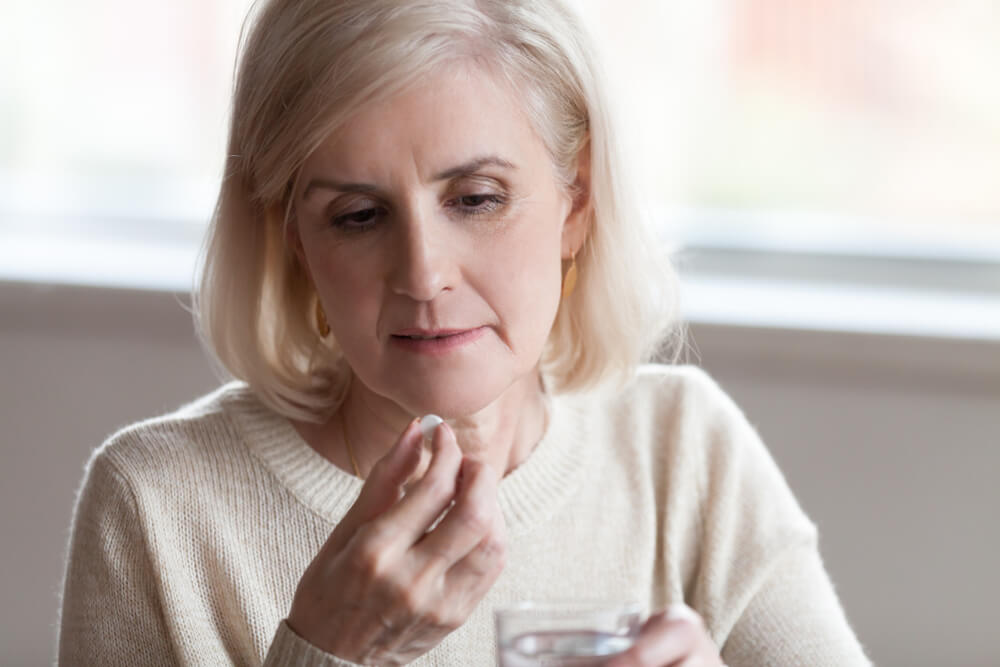Create a menopause treatment plan that works for you with the help of BetterHealthKare.com.
The beginning of menstruation and the lack of it are both major events that take place in a woman’s body. Puberty is the stage of life where female adolescents begin to approach their sexual maturity with menstruation, as the body prepares for reproduction. Menopause, on the other hand, is the stage of life when menstruation gradually slows down and eventually ceases.
Menopause can cause adverse symptoms that can be frustrating and at times, may seem overwhelming. Luckily, some symptoms may be eased by using home remedies for menopause as a part of your regular treatment plan.
Click here to discover menopause symptoms and treatment options
Menopause Treatment
Menopause usually begins around the age of 45 to 55 and occurs when a woman has not had her menstrual cycle for more than 12 consecutive months, and can no longer naturally reproduce. Women usually begin menopause symptoms about 4 years before their last menstrual cycle, and symptoms can continue for 4 years or longer after their last menstrual cycle. During menopause, you may experience any number of symptoms, including:
- Mood swings, depression, anxiety, headaches
- Memory impairment, difficulty concentrating
- Fatigue
- Irregular menstrual cycles
- Hot flashes, flushing
- Heavy bleeding
- Frequent urination or urinary tract infections
- Excessive night sweats
- Vagina dryness, itching, and painful intercourse.
- Weight gain
- Stiff joints
- Racing heart
- Reduced bone and muscle mass
- Hair thinning, or loss
- Insomnia
- Reduced libido
- Dry skin, mouth or eyes
- Tender breasts
- Increased hair growth on the face, neck, and upper body
Severe symptoms may affect your quality of life and require hormone therapy to replace lower levels of estrogen, progesterone, testosterone, luteinizing hormone, and follicle-stimulating hormone. There are also medications that treat specific symptoms, such as:
- Selective serotonin reuptake inhibitors (SSRI’s) to treat depression, anxiety, and hot flashes.
- Topical Minoxidil 5% may treat thinning hair and hair loss.
- Non-hormonal vaginal moisturizers and lubricants.
- Ospemifene for painful intercourse and vaginal dryness.
- Antibiotics to treat recurring urinary tract infections.
- Sleep medications to treat insomnia.
- Various medications that treat post-menstrual osteoporosis.
- Anti-dandruff shampoos (ketoconazole 2% and zinc pyrithione 1 %) to treat hair loss.
- Eflornithine hydrochloride topical cream that removes unwanted hair growth.
Click here to discover when menopause typically appears
Natural Menopause Remedies
You can manage some of your menopause symptoms with our natural menopause remedies that include lifestyle changes, alternative therapies, and home remedies for menopause, such as:
- Dress appropriately (especially at night) to reduce the effects of hot flashes and night sweats. Dress in layers during the day so that you can remove clothing when you have to. You may want to use a waterproof sheet to protect bedding from night sweats, and always use a fan, portable fan, or air conditioning to help you cool off.
- Supplementing your diet with vitamin D, calcium, and magnesium will help prevent osteoporosis, help increase your energy level, and aid in sleeping.
- If you are having mental issues like depression, anxiety, sadness, loneliness, mood swings, and identity issues, speak with your doctor, psychologist, or trusted family members and friends. Communication is the key to getting the help you need.
- Exercise and weight management is another menopause treatment that will help you feel better mentally and physically, plus aid in sleeping. If you are overweight, try to reduce your caloric intake by 400 to 600 calories a day until you reach your weight goal. Also, try to exercise for at least 20 to 30 minutes each day.
- Reducing your alcohol intake will help to reduce menopause symptoms, and if you smoke you should consider quitting.
- Natural menopause remedies also include vitamins E and D, soy isoflavone, flax seed, St. John’s Wort, acupuncture, ginseng, yoga, essential oils, and melatonin.
- Eat lots of fruits and vegetables, and avoid trigger foods like caffeine, alcohol, sugary or spicy foods. Eat more phytoestrogen foods like soybeans, soy products, tofu, beans, tempeh, flaxseeds, sesame seeds, and linseeds.
When you follow our home remedies for menopause, you may be able to manage your menopause better and reduce many symptoms. Good nutrition, a healthy lifestyle, and common sense should all take part in your menopause treatment plan.
Experiment with different options to see which home remedies for menopause work best for you. Learn more at www.BetterHealthKare.com.

